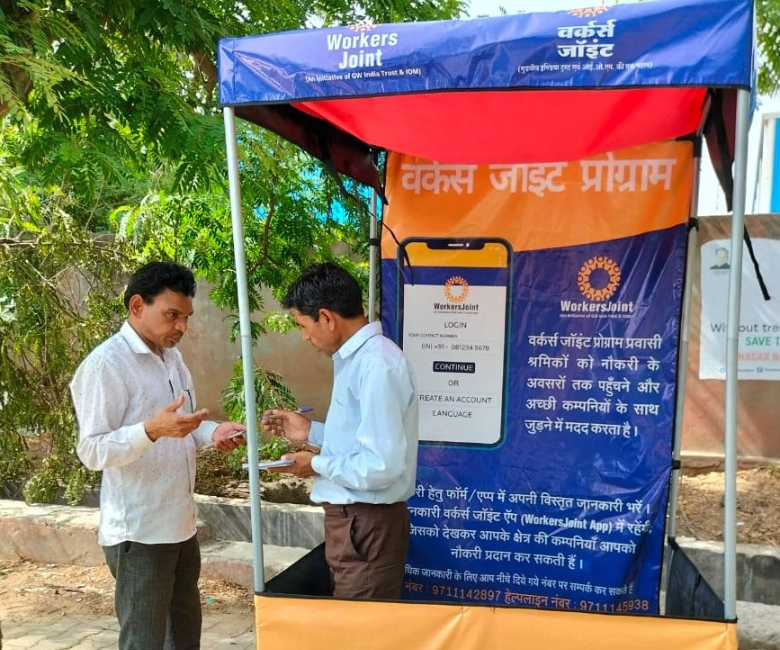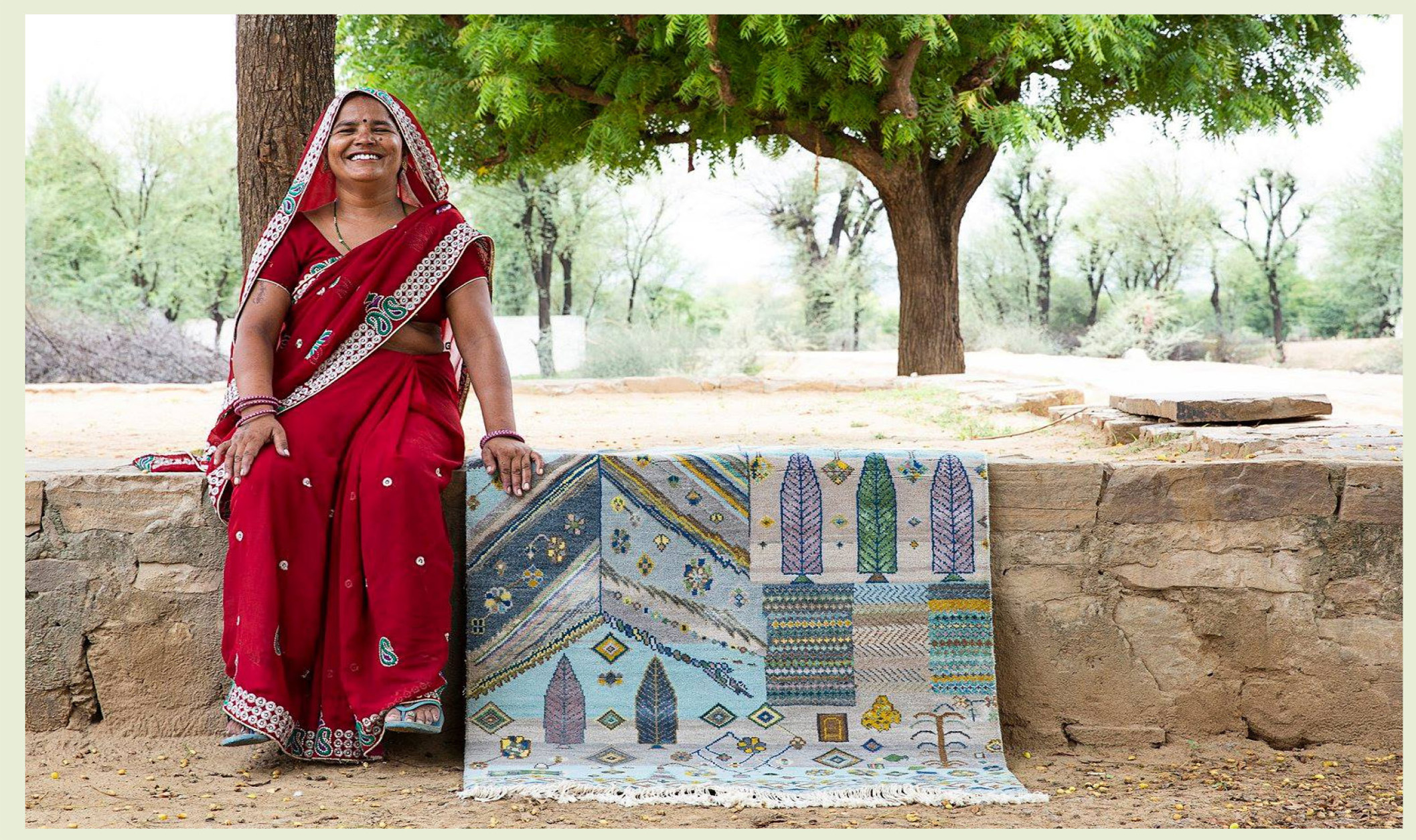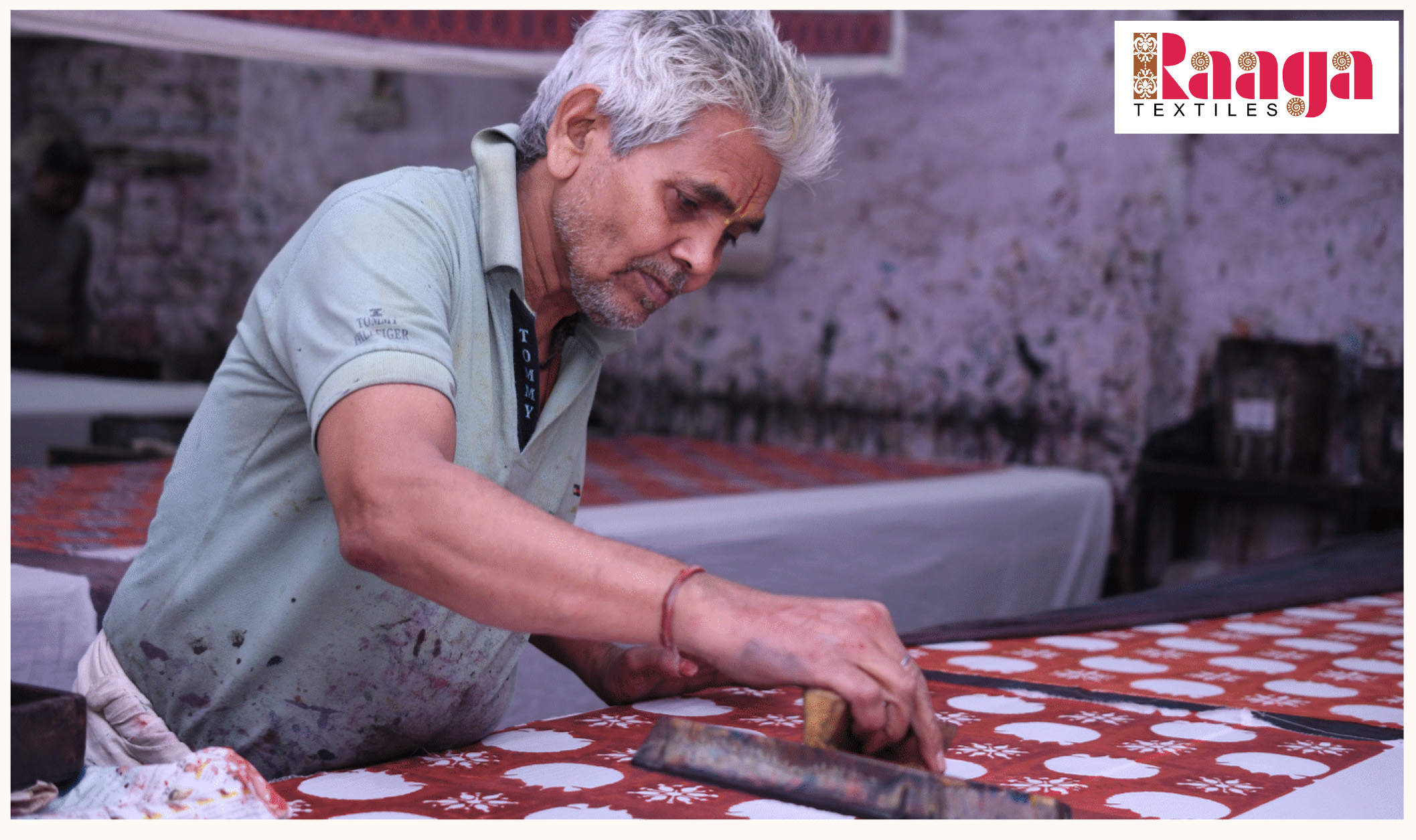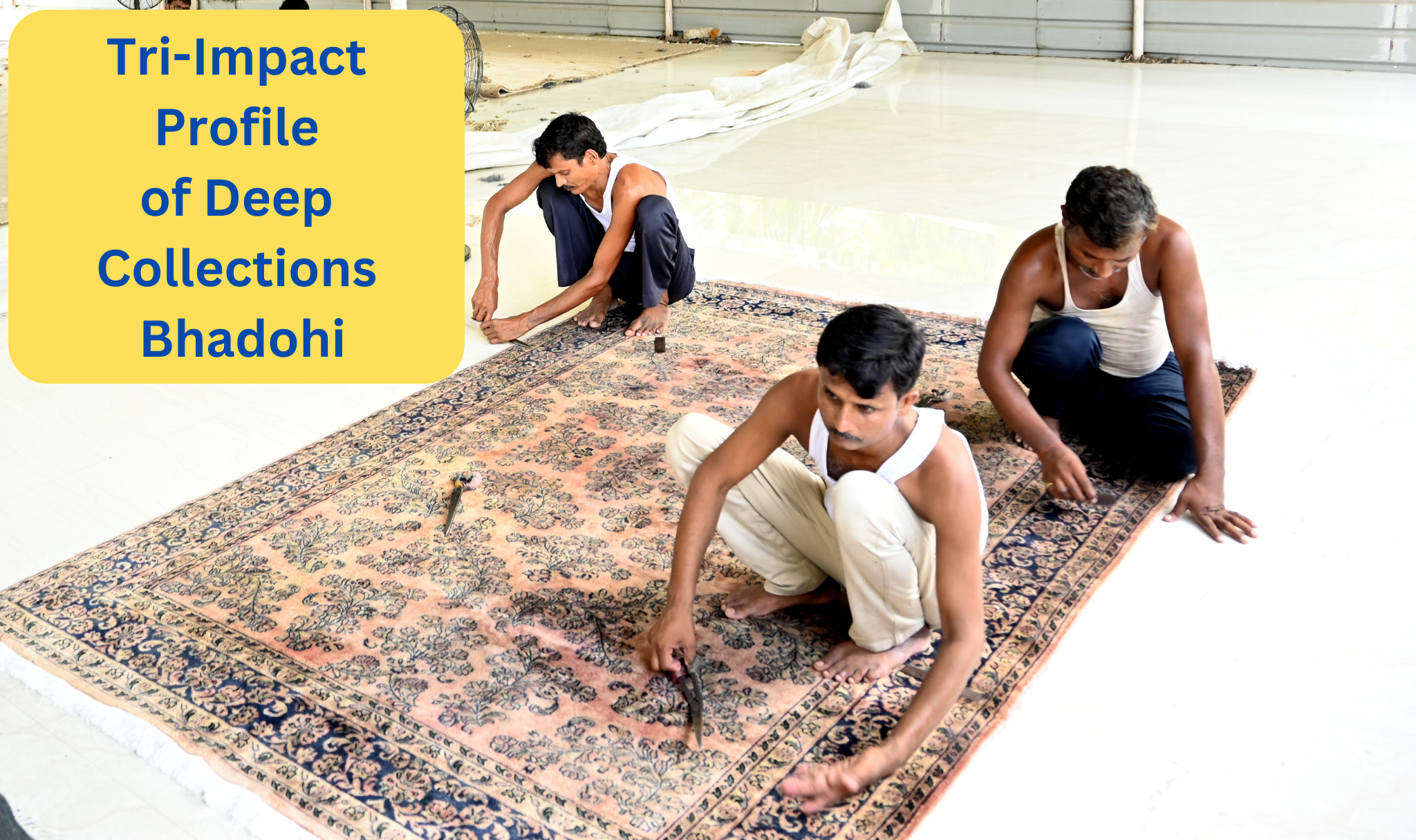Roshni Program
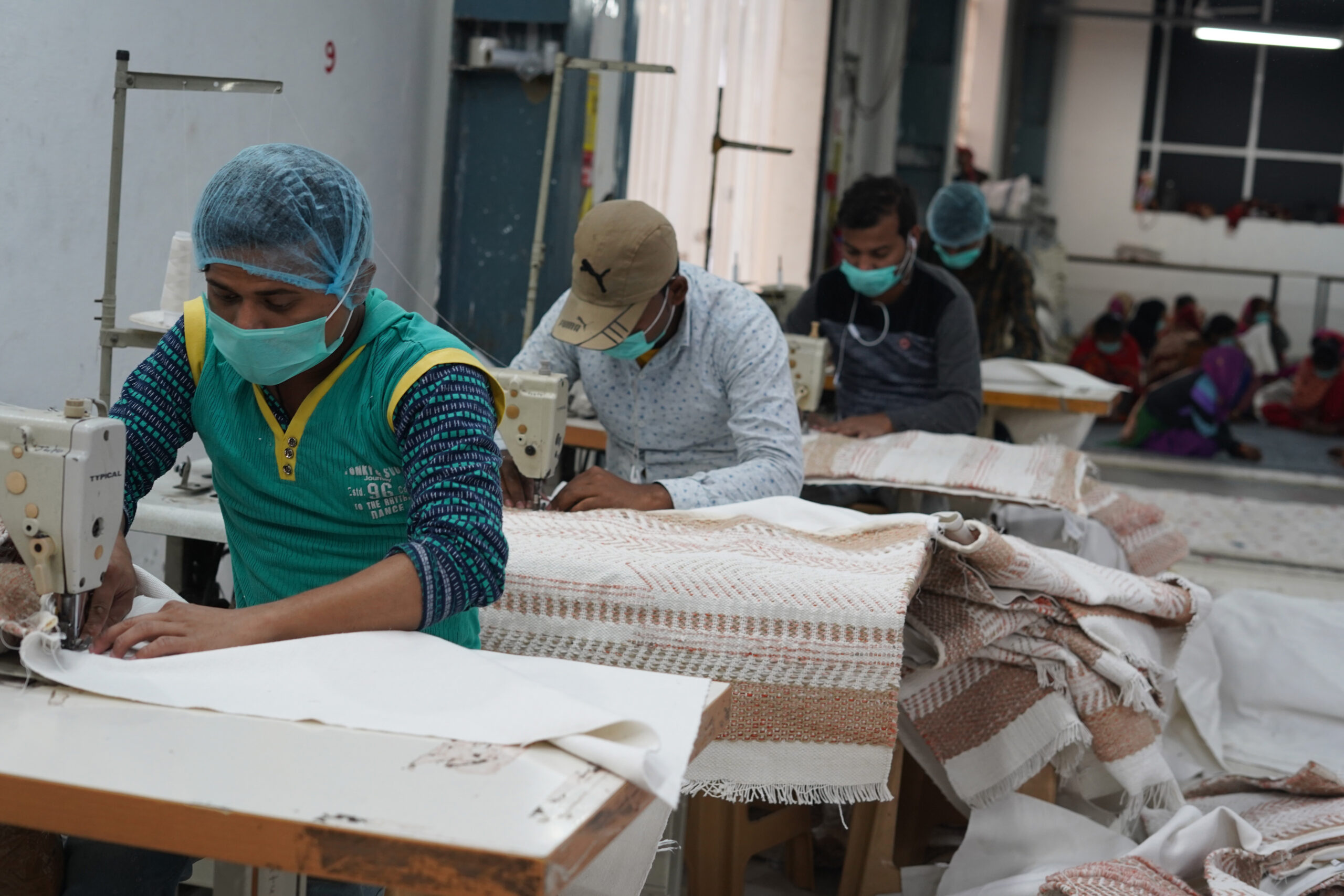
Roshni is a capacity building program designed for Global Value Chains in India based on Participatory Learning and Action methodologies. It is designed to support businesses in improving working conditions for workers, environmental action, and sustainable business growth.
Businesses want to focus on the needs of their buyers in terms of products, production processes, and social and environmental compliances. At the same time, it is mandatory to follow government regulations.
Roshni supports businesses in mapping and engaging their entire production universe in fulfilling social and environmental responsibilities through systematic local and global collaborative action.
Roshni builds the capacity of businesses to map their entire production universe, conduct gap analysis, and develop ways to improve through implementing an action plan. Roshni encourages measuring the impact and sharing experiences with other stakeholders to encourage replication and scale.
Tri-Impact has evolved Roshni’s methodology through rigorous testing with several value chains.
Step 1: Mapping all your suppliers to Know your Production Universe.
Step 2: Buyers expect manufacturers to manufacture responsibly. Grow your business by knowing the expectations of your potential buyer. Roshni helps businesses understand these expectations.
Step 3: Evaluate your production universe for the above expectations through self-assessments. Again, this is required to be done for entire supply chain.
Step 4: For any non-compliances, set your goals and identify appropriate ways to achieve them. Roshni works with companies to guide how to achieve those goals through collaborations, providing policies and tool kits.
Step 5: Achieve goals by acting throughout your production universe.
Step 6: Improvement is a continuous process. Analyse the extent of improvement and measure success.
Step 7: The success, learning and progress needs to be shared with stakeholders such as businesses, government departments, buyers, schools, hospitals, community leaders etc to motivate them and promote scale.
The seven steps are repeated to build learning, collaborations, success, and behavioral change in the entire value chain to improve working conditions for workers and environmental action in Global Value Chains.
Presently, 25 companies and their supply chains consisting of more than 200 manufacturing units participate in the Roshni program to achieve a more significant impact.
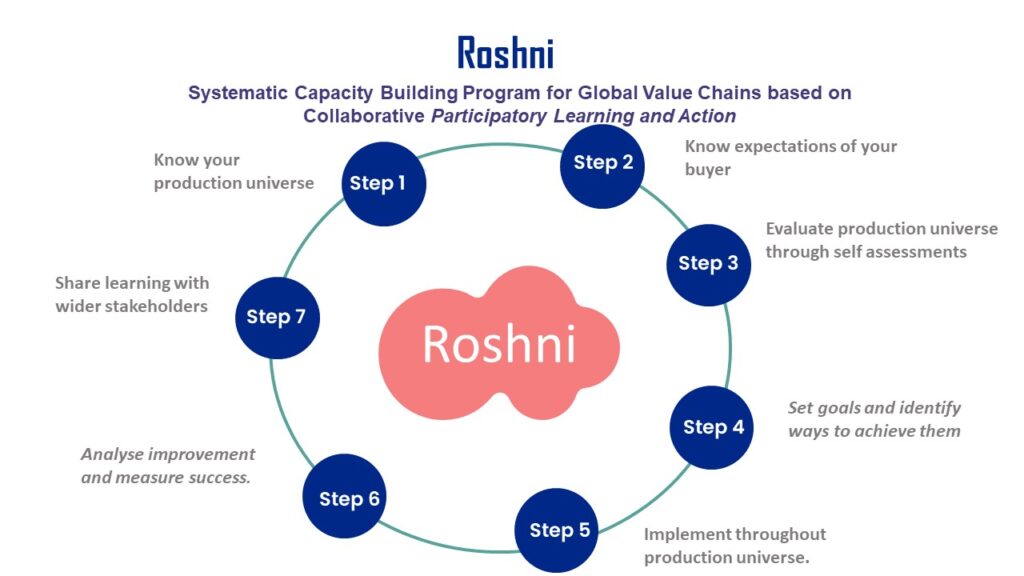
Promoting Education
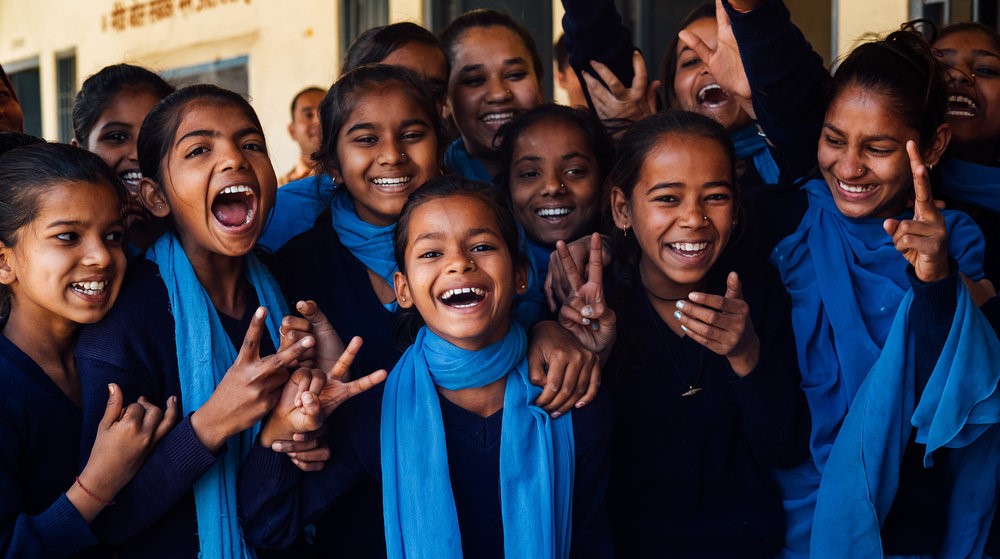
Supporting children in worker communities and urban labor colonies
The program involves working with vulnerable children, such as those not enrolled, not learning, or school dropouts, in artisan communities. Through active engagement with government and private schools in the area, local authorities, Madrasas, community members, we overcome any limitation related to community access and education for these children.
Limiting child labor through the preventive approach implies that businesses can confidently outsource work to small production units and artisan communities where education is guaranteed and the risk of child labor is negligible.
In 55 Communities of Haryana, Rajasthan and Uttar Pradesh, we supported 47,908 Children. We are also working with worker communities to identify more children and link them with educational services.
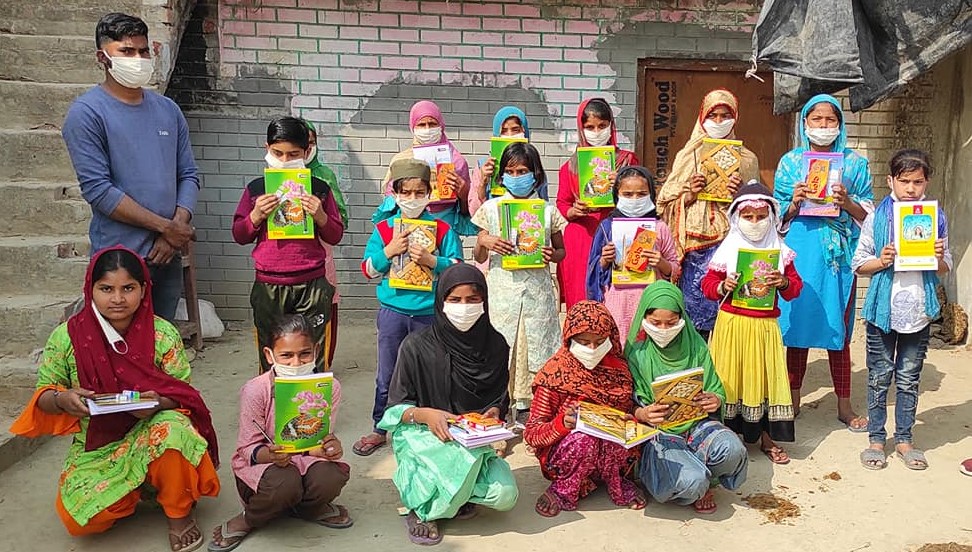
Supporting children in the supply chains
We are dedicated to keeping children away from exploitative production activities that become detrimental to children’s rights. Children of workers in production supply chains, especially those identified as at-risk of child labor, are effectively supported, enrolled in schools and receive educational, emotional and social rehabilitation.
We work with diverse stakeholders, including employers, family members, schools, government agencies, to ensure that all children continue their education and are protected.
Covid-19 Response
We previously worked with around 90,000 informal workers including artisans and 41,000 children in the supply chains, industrial areas, and home-based worker communities. The geographical regions include Uttar Pradesh, Haryana, Rajasthan, West Bengal and Kerala. We have been reaching out to all these workers and their families to provide immediate support as and wherever needed, and is also working with them to help build resilience in the post – COVID ecosystem through focused initiatives.
We have reached out to 28,413 families of workers communities including migrant workers directly through phone calls and took cognizance of their immediate problems and need. The information gathered is used in assessing and addressing the most critical needs on a priority basis.
We utilized government approved IEC materials in form of text, audio and video to create awareness in the communities about Covid-19. So far, 114,759 community members have been sensitized from various districts of UP, Haryana and Rajasthan.
Ration kits were provided to worker communities and migrant workers to avoid food crisis during lockdown and wage loss. So far 17,389 ration kits have been distributed in various districts of UP, Haryana and Rajasthan benefiting 69,557 family members.
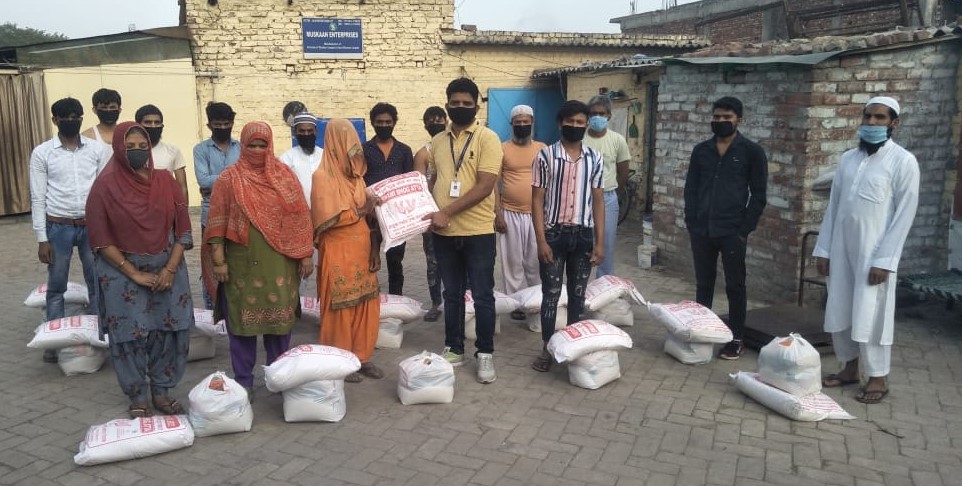
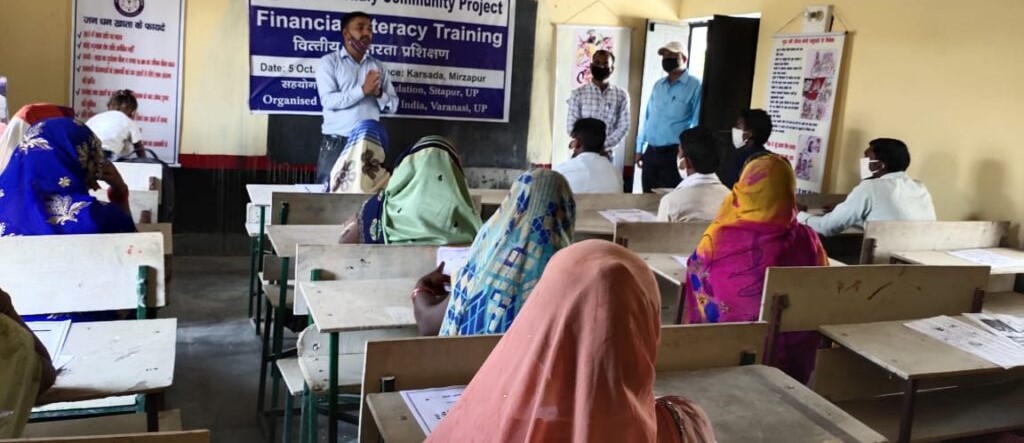
Hygiene Aids (Face Masks and Hand Gloves) are also being distributed in worker communities. So far, 89,240 masks have been distributed across our intervention locations.
Children in 55 vulnerable worker communities spread across Varanasi, Panipat, Jaipur and Greater Noida are receiving virtual educational support during this ongoing pandemic. So far, 13,340 children have been linked with virtual educational services using WhatsApp.
We have organized training of community members on financial literacy and so far 5,679 beneficiaries have been trained and 90 percent of them were women. Financial Literacy helps women access banks, receive financial assistance and make small savings.
We supported communities to open Jan-Dhan bank accounts and so far 1,020 new accounts have been opened. Out of the total 75 percent beneficiaries were women. We also worked to activate the dormant accounts and linked them with Aadhaar numbers, so that the beneficiaries can receive government assistance.
Tri-Impact Partnership
Tri-Impact partnership documents the businesses’ good efforts, practices, and policies to develop their Tri-Impact profile. It also co-creates a plan of action for the businesses to set and achieve their sustainability goals. The partnership helps businesses attract resources and forge new alliances with like-minded companies worldwide to achieve their goals.
Please see below a few Tri-Impact profiles in write up and a video format.
Tri-Impact Profile of Jaipur Rugs
Tri-Impact Profile of Raaga Textiles
Tri-Impact Profile of Tulsiram Rugs
Tri-Impact Profile of Deep Collections
WorkersJoint Program
A holistic program for workers and companies
WorkersJoint is a holistic program designed to support marginalized, migrant, unemployed, home-based workers, women workers, and micro-producers to attain greater upward social and economic mobility, thereby creating an ethical ecosystem for responsible hiring.
WorkersJoint Program builds the database of informal workers and connects them with Businesses through a tech platform.
The digital platform of WorkersJoint makes the workers visible in the job market. It helps them connect with businesses that offer them better work opportunities and environments. The program continues working with the workers registered on the digital platform and their employers to ensure all workers are connected with social security and their children attend school.
Partnering with International Organization for Migration (UN-IOM)
WorkersJoint program has joined with the International Organization for Migration (IOM). It is part of the United Nations System as the leading inter-governmental organization promoting migration for the benefit of all, with 174 member states and a presence in over 100 countries. In India, IOM is not only focused on international migrant workers but is also looking into the vast quantum of inter-state migrant workers to help protect their interests.
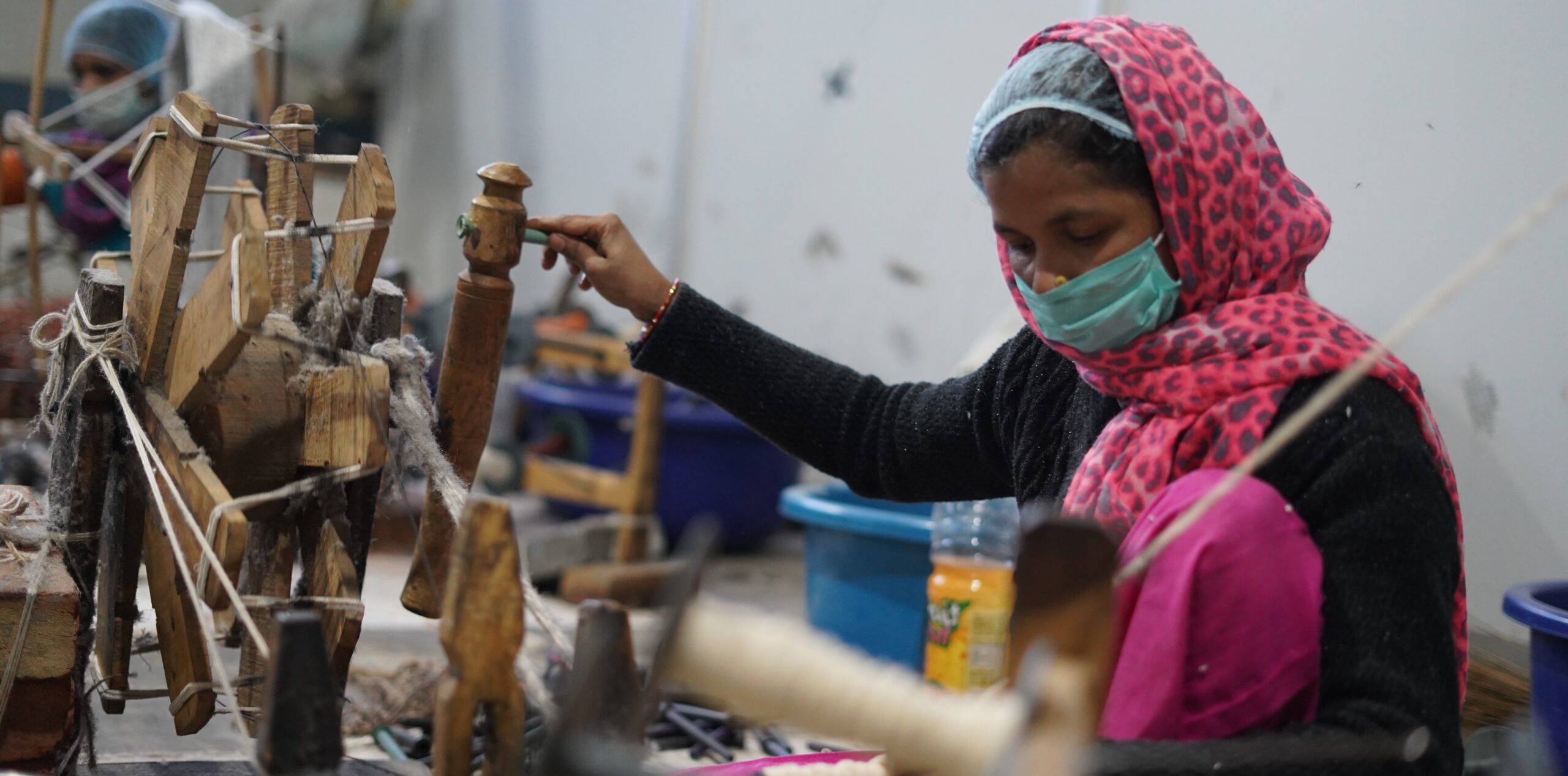
Electronic Migration Resource Centre (e-MRC): eMRC has a collection of information that a migrant worker might be looking for. It includes emergency helpline numbers, information about the city, industry information, labor laws, and human rights. Currently, all data pertains to Jaipur city. As the wings of WorkersJoint spread to other cities, this e-MRC will be updated with information regarding other locations.
A holistic program for workers and companies
WorkersJoint is a holistic program designed to support marginalized, migrant, unemployed, home-based workers, women workers, and micro-producers to attain greater upward social and economic mobility, thereby creating an ethical ecosystem for responsible hiring.
WorkersJoint Program builds the database of informal workers and connects them with Businesses through a tech platform.
The digital platform of WorkersJoint makes the workers visible in the job market. It helps them connect with businesses that offer them better work opportunities and environments. The program continues working with the workers registered on the digital platform and their employers to ensure all workers are connected with social security and their children attend school.
Partnering with International Organization for Migration (UN-IOM)
WorkersJoint program has joined with the International Organization for Migration (IOM). It is part of the United Nations System as the leading inter-governmental organization promoting migration for the benefit of all, with 174 member states and a presence in over 100 countries. In India, IOM is not only focused on international migrant workers but is also looking into the vast quantum of inter-state migrant workers to help protect their interests.
Making millions of informal workers visible
The Sustainable Development Goals 2030 see poverty reduction and inclusive growth as one of the most significant challenges. India has to do a lot in this area as the Indian economy is still characterized by a vast majority of informal or unorganized employment. India’s economic growth and development crucially depend on the financial viability of the informal economy. Hence its visibility and upliftment are the need of the hour. Tri-Impact Global has set up a one-stop digital platform for informal workers, called WorkersJoint, to capitalize on their strengths and talents, making them visible to employers and helping them explore better employment opportunities.
The WorkersJoint platform provides ease to informal workers to become visible and employable and reach their full potential, at the same time enabling enterprises to hire and increase productivity in their businesses. In addition to facilitating employment opportunities, the other pertinent feature of the initiative includes linking informal workers with different social security schemes of the government, linking them with bank accounts, recognizing their prior learning, and providing soft skill training to improve their employability, to name a few.
WorkersJoint program is set on a mission to create a database of one million verified artisans and informal workers in the next five years and carry out innovative partnerships with enterprises to promote responsible hiring.
Promoting best practices of sustainability
Tri-Impact also observed too much negativity regarding businesses and their supply chains. It is necessary to talk about the problems but pointing out negativity without understanding the context and culture and without having relevant data or no data does not solve the problem. Negativity discourages companies from taking any steps beyond basic compliances. We strongly believe that there is a need to focus on the examples of positive efforts of the companies to build a momentum of inspiration and motivation and to nurture enabling mechanisms through collaborations to achieve sustainable positive impacts on a larger scale.
Examples of positive change can potentially motivate transformative improvements at the base of the Global Supply Chains. Tri-Impact Global has been working with thousands of production units in India. Building on its strength, Tri-Impact Global is documenting, sharing, and enabling examples of best practices to ensure they spread and flourish on a larger scale to contribute toward Sustainable Development Goals (SDGs). The organization achieves it through meaningful collaborations with citizens, companies, organizations, government programs, and policies.
Building meaningful collaborations
Tri-Impact is designed to leverage the power of citizens, sustainability institutions, regulations, good essence of the companies, and best practices by integrating the enormous transformative potential of digital and climate action technologies.
HelpLine: Another critical feature of WorkersJoint is the live Helpline number 097111 45938, which any worker can call for information. Helpline provides relevant information support to workers, mainly migrant workers.
